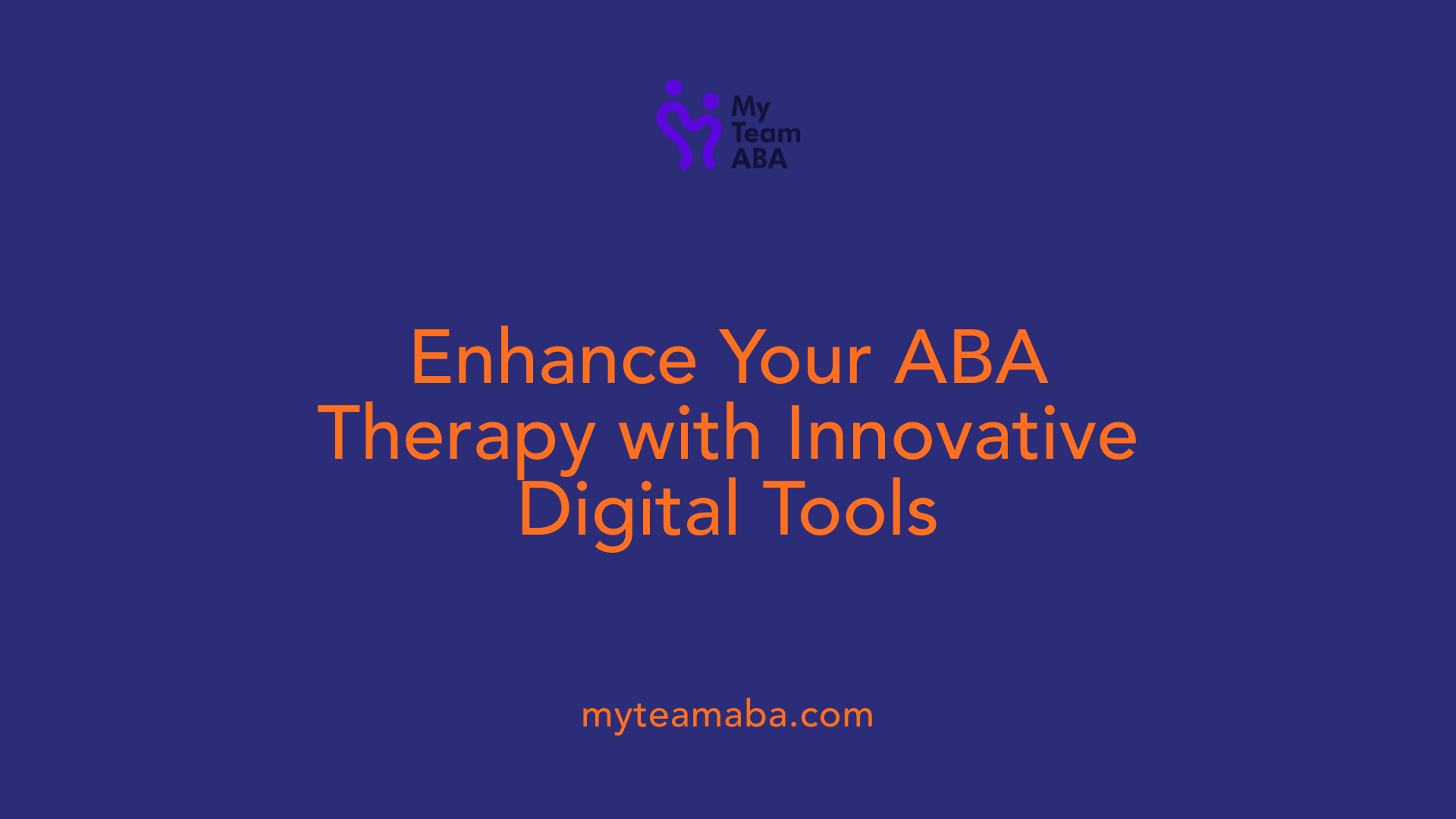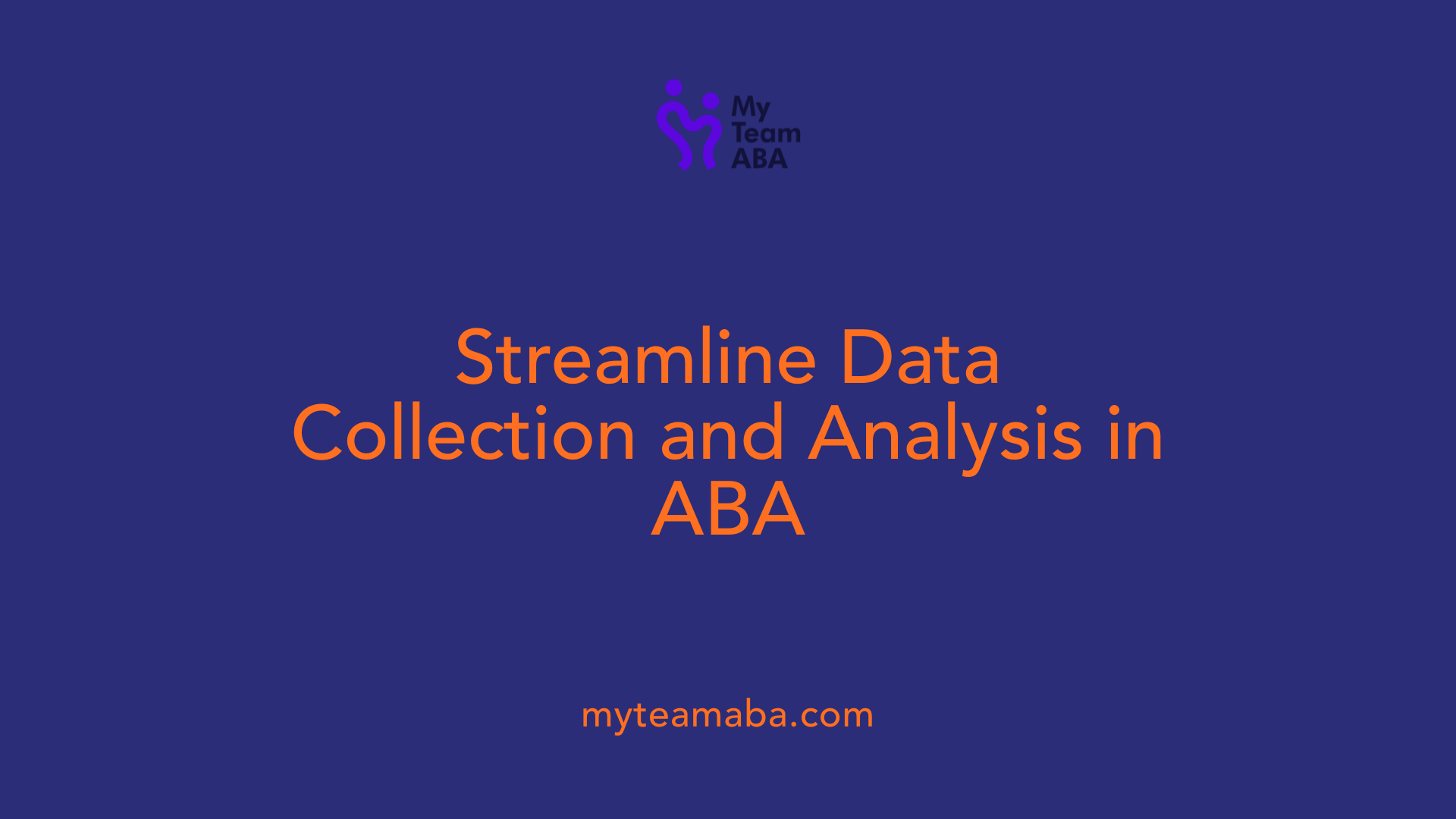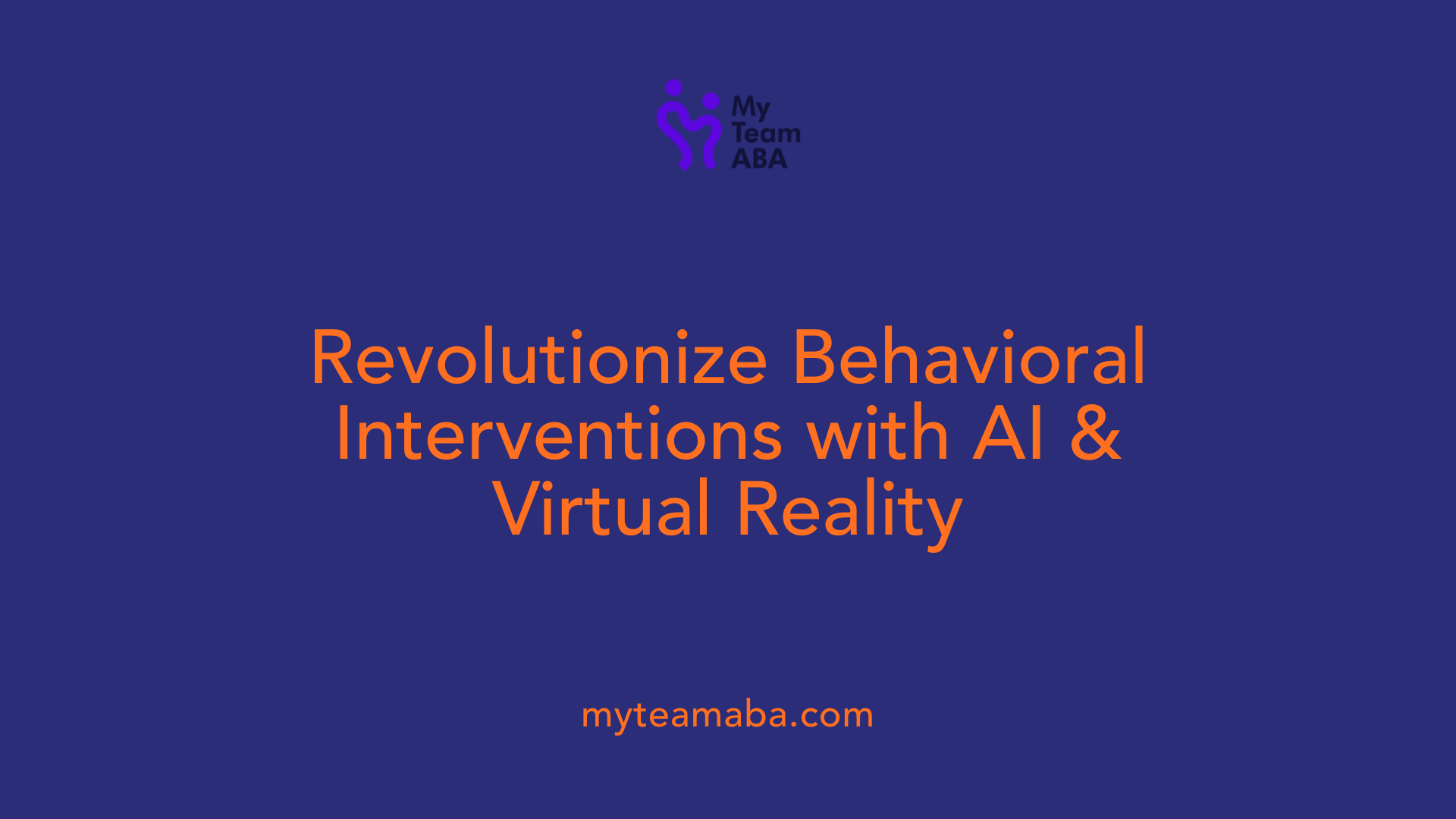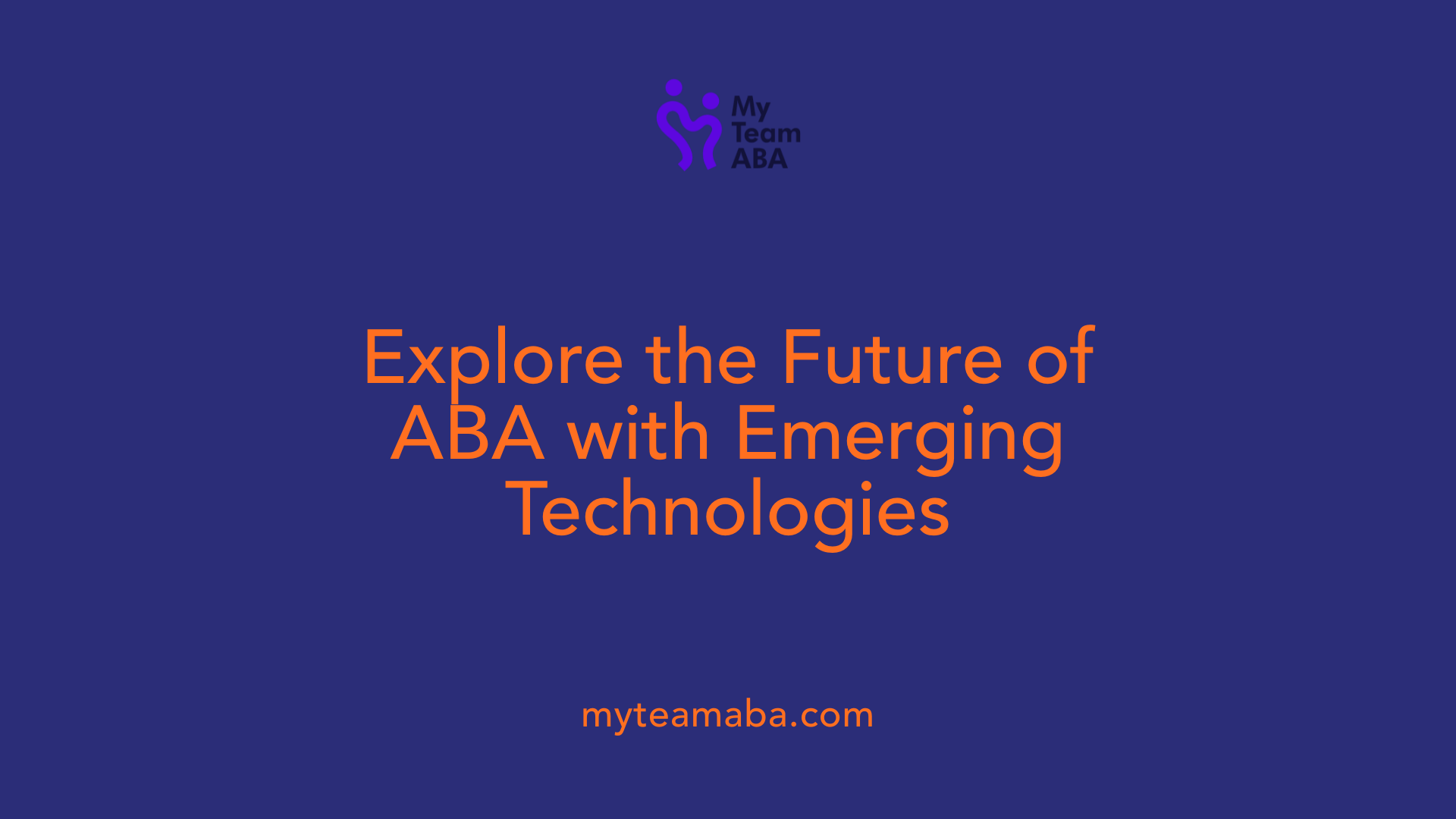How Technology is Enhancing ABA Therapy Techniques
July 24, 2025
Innovative Digital Interventions Transform ABA Therapy

Harnessing Technology to Revolutionize Behavioral Interventions
The integration of cutting-edge technology in Applied Behavior Analysis (ABA) has ushered in a new era of personalized, effective, and accessible interventions for individuals with autism and developmental disabilities. From immersive virtual environments to real-time data tracking tools, technological advancements are fundamentally enhancing how therapists assess, monitor, and modify behaviors, leading to improved outcomes and increased engagement.
Digital Tools and Mobile Applications in ABA

How does technology improve the efficacy of ABA strategies through educational insights?
Technology greatly enhances ABA therapy by offering a variety of innovative tools that support detailed data collection, analysis, and personalized intervention strategies. Mobile applications allow therapists and caregivers to monitor behaviors and progress constantly, enabling quick adjustments to treatment plans based on real-time insights.
Assistive communication devices equipped with apps such as Proloquo2Go and Symbotalk improve interaction by providing pre-recorded messages and conversation cues. These tools empower non-verbal or minimally verbal individuals to communicate more effectively, reducing frustration and fostering social engagement.
Moreover, specialized software helps in teaching essential daily skills like hand washing, counting money, or telling time. These programs use images, sounds, and interactive prompts to make learning engaging while reinforcing skills in a structured way.
Gamification and interactive platforms further motivate clients by incorporating rewards, challenges, and fun activities into therapy sessions. This approach taps into the natural desire for play, making learning both effective and enjoyable.
Technology-driven tools not only promote skill development but also support behavioral management by providing immersive experiences such as virtual reality simulations. These environments enable practice of social situations and behaviors in a controlled, stress-free setting.
In summary, integrating digital tools in ABA enhances the quality and efficiency of interventions, allowing for more precise, engaging, and adaptive therapy tailored to each individual’s needs.
Enhancing Data Collection and Analysis with Technology

What technological advancements are available for data collection and analysis in ABA?
Advances in technology have significantly improved how data is collected and analyzed in Applied Behavior Analysis (ABA). Digital data collection platforms and apps, used on computers, tablets, and smartphones, enable therapists to record information quickly and accurately during sessions. These tools reduce paperwork and minimize errors, providing real-time data that helps inform immediate decisions.
Telehealth has also transformed ABA practices by allowing remote monitoring through webcams and digital devices. This approach increases access to therapy, especially for clients in remote or underserved areas, and supports continuous care.
Innovative methods like augmented reality (AR) and virtual reality (VR) are used to simulate social environments, helping children practice skills without real-world stress. Wearable devices, such as sensors or smartwatches, monitor physiological responses and physical behaviors, offering additional insights for personalized treatment plans.
Mobile applications, equipped with features tailored for ABA, support data collection on behaviors and routines, reinforcing learning through interactive content. These technological tools collectively enhance the efficiency and precision of data management, enabling more individualized and effective therapy strategies.
Despite the benefits, challenges such as ensuring data privacy, managing costs, and providing adequate training for practitioners remain. Nonetheless, technology continues to push forward the capabilities of ABA data collection, making therapy more effective and adaptable to each client's unique needs.
| Technology Tool | Functionality | Additional Details |
|---|---|---|
| Digital platforms and apps | Data entry, tracking, and analysis | Used on smartphones, tablets, computers |
| Telehealth systems | Remote therapy sessions | Webcams, secure online platforms |
| Virtual and augmented reality tools | Social skills simulation | Safe, controlled environments |
| Wearable devices | Physiological and behavior monitoring | Smartwatches, sensors |
| Mobile ABA apps | Behavior monitoring and reinforcement | Interactive exercises, reminders |
This technological integration fosters personalized, efficient, and engaging ABA therapy, ultimately improving outcomes for individuals with developmental disabilities.
The Role of AI and Virtual Reality in Behavioral Healthcare

How are AI and virtual reality being applied in behavioral interventions?
Artificial Intelligence (AI) and Virtual Reality (VR) are transforming behavioral healthcare by offering innovative tools that enhance assessment, customize treatment plans, and improve skill learning.
VR creates immersive environments where individuals can safely practice social interactions, exposure to stressors, or behavior modification exercises. For example, children with social anxiety or autism can simulate real-world social settings through VR, helping them gain confidence and develop social skills without the pressures of actual social environments.
AI complements VR by analyzing data collected during these sessions, such as physiological responses, behavioral patterns, and engagement levels, in real time. This analysis allows therapists to tailor interventions specifically to each person's needs, adjusting difficulty levels or techniques dynamically.
Many programs employ AI-driven virtual classrooms that automatically evaluate social and emotional responses, offering immediate feedback. AI-powered avatars also serve as virtual therapists or social partners, providing consistent, scalable support for mental health therapy.
Together, AI and VR enable scalable, personalized, and effective behavioral interventions. They also support remote therapy, increasing accessibility for clients in distant or underserved areas.
While promising, ongoing research is needed to validate these technologies' effectiveness and address ethical considerations, such as data privacy and user safety.
| Technology | Application | Benefits | Examples |
|---|---|---|---|
| Virtual Reality | Social skills training, exposure therapy | Safe simulation of real-world scenarios | Immersive social interaction modules |
| AI Analysis | Real-time data assessment | Personalized feedback, adaptive interventions | Virtual classroom assessments |
| Avatars | Virtual therapists or social partners | Consistent support, scalability | AI-powered social skills coaches |
This integration of AI and VR is paving the way for more engaging, customized, and accessible behavioral healthcare solutions, promising improved outcomes for individuals with various mental health challenges.
Engagement Tools and Wearable Technologies
What engagement tools and wearable devices are used to improve therapy outcomes?
In Applied Behavior Analysis (ABA), a range of technological tools and wearable devices are employed to increase engagement, monitor behavior, and tailor interventions effectively.
Wearable sensors such as smartwatches, wristbands, patches, headbands, and chest straps are used extensively. These devices can track vital signals, including heart rate, skin temperature, respiratory rate, oxygen saturation, blood pressure, and ECG data. By analyzing these signals, therapists can gain insights into emotional states—such as stress, relaxation, or excitement—in real time.
Many of these devices help identify physiological responses linked to behavior. For example, elevated heart rates may indicate heightened anxiety or arousal, prompting adjustments in the therapy session.
Innovative wearable tech like Google Glass paired with mobile apps such as Superpower Glass enhances social skills. This device provides audiovisual feedback to help children with autism recognize emotions, improving their social interactions and emotional understanding.
Virtual reality (VR) platforms, telehealth services, and robots also play crucial roles. VR environments simulate social scenarios for practicing skills safely and engagingly, while telehealth allows therapy to be delivered remotely, increasing accessibility.
Robots serve as engaging social partners and educational tools, facilitating interaction and learning in a controlled, motivating environment.
Collectively, these tools support dynamic, personalized therapy sessions. They enable continuous monitoring of engagement and emotional responses, making interventions more responsive. The integration of wearable sensors, VR, telehealth, and robotics provides comprehensive support, especially valuable in remote or home-based therapy.
| Technology Type | Purpose | Example Devices / Platforms | Benefits |
|---|---|---|---|
| Physiological sensors | Monitor stress, engagement | Smartwatches, patches, headbands, chest straps | Real-time emotional state tracking |
| Visual feedback devices | Recognize emotions, improve social skills | Superpower Glass, augmented reality headsets | Enhance emotion recognition |
| Virtual reality | Simulate social situations | VR headsets, immersive environments | Safe practice space, increased motivation |
| Telehealth platforms | Remote therapy delivery | Secure online video sessions | Increased access, flexible scheduling |
| Robotics | Support social and behavioral skills | Companion robots, educational robots | Interactive, engaging learning environments |
These technological innovations significantly support the goal of creating engaging, adaptive, and personalized ABA interventions, ultimately leading to better participation, motivation, and social responsiveness among clients.
Future Outlook and Emerging Technologies in ABA

What is the future potential of emerging technologies in ABA?
The landscape of Applied Behavior Analysis (ABA) is poised for exciting growth thanks to technological advancements. AI, virtual reality (VR), augmented reality (AR), wearable sensors, and digital data tools are setting the stage for a transformation in intervention strategies.
Artificial Intelligence will likely play a central role by enhancing real-time behavior analysis, customizing treatment plans, and predicting therapy outcomes more accurately. This means behavior analysts can fine-tune interventions on the fly, based on immediate data analysis.
Immersive environments created through VR and AR will enable social skills training in controlled yet realistic scenarios. Children can practice conversations, social cues, and adaptive behaviors safely and comfortably, which boosts confidence and generalization of skills.
The expansion of telehealth services combined with mobile health apps makes ABA more accessible than ever. Clients in remote or underserved areas can participate seamlessly, ensuring therapy continuity despite geographical barriers.
Wearable sensors are another promising development. They allow for continuous monitoring of physiological responses like heart rate and stress levels, providing critical insights into client behavior and emotional states across different settings.
However, these technological innovations come with challenges. Privacy concerns, high costs, and the need for specialized clinician training are ongoing issues that must be addressed. Despite these hurdles, the future of ABA technology promises more effective, engaging, and personalized interventions. Advances will help therapists craft strategies tailored to each individual, improving overall outcomes, and enhancing the quality of life for individuals with autism and developmental disabilities.
Transforming Therapy with Technology
As technological innovations continue to evolve, their integration into ABA therapy promises to revolutionize behavioral interventions by making them more personalized, engaging, and accessible. The convergence of virtual reality, AI, telehealth, and wearable devices not only enhances the precision and efficiency of treatment but also broadens opportunities for individuals with autism worldwide. While challenges such as privacy concerns and the need for clinician training persist, the trajectory of emerging technologies suggests a future where ABA therapy can be delivered more effectively, with greater emphasis on data-driven, immersive, and user-centered approaches.
References
- How Technology Can Be Used in ABA Therapy - CamaliClinic
- The Future of ABA and AI: How Technology is Shaping ABA
- 5 Ways Technology is Used in Applied Behavior Analysis
- Top 7 Technological ABA Innovations Transforming Therapy
- The Role of Technology in Enhancing ABA Therapy for Autism
- Technology and Applied Behavior Analysis (ABA)
- Incorporating Technology in ABA Therapy Practices
